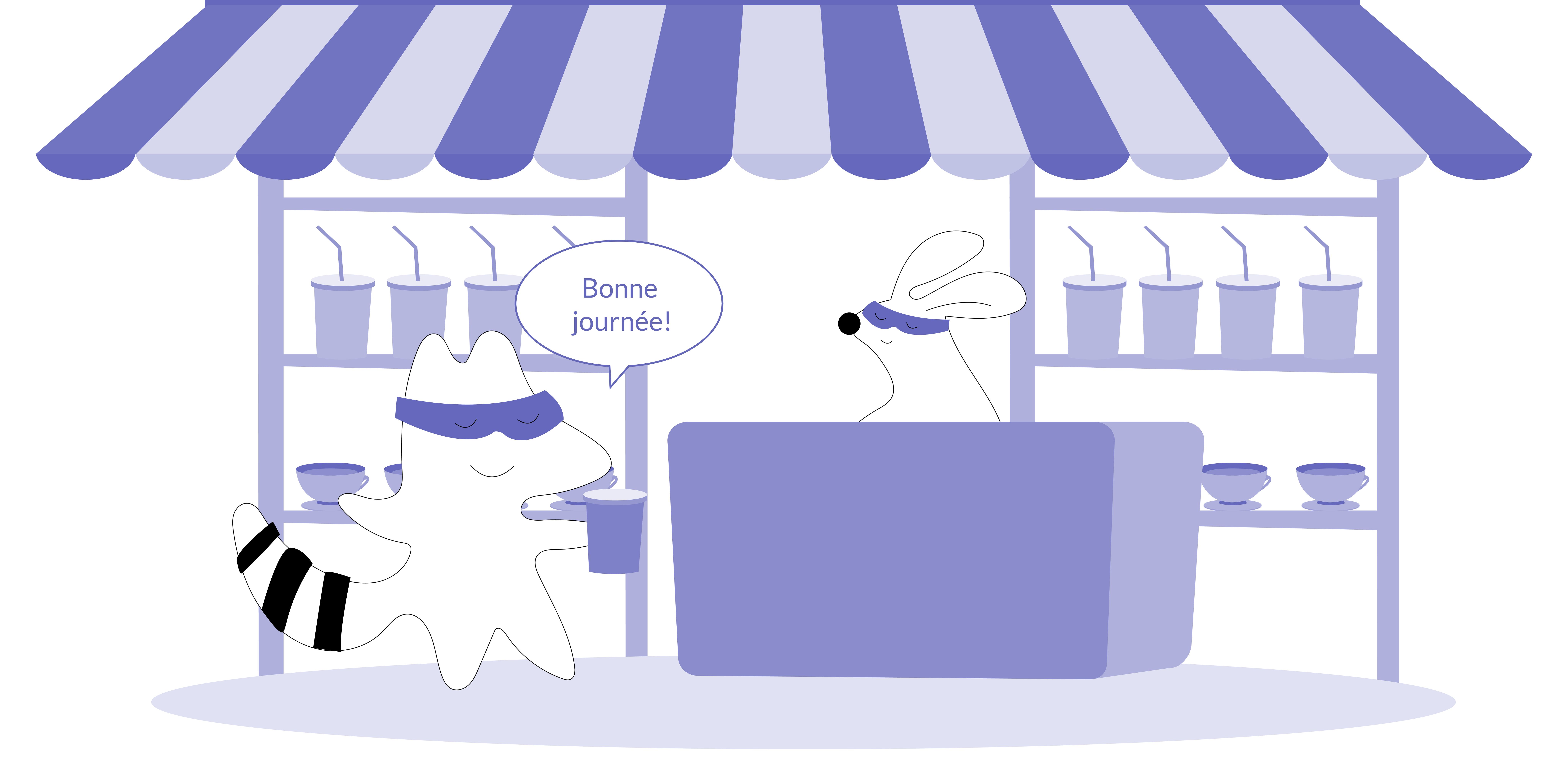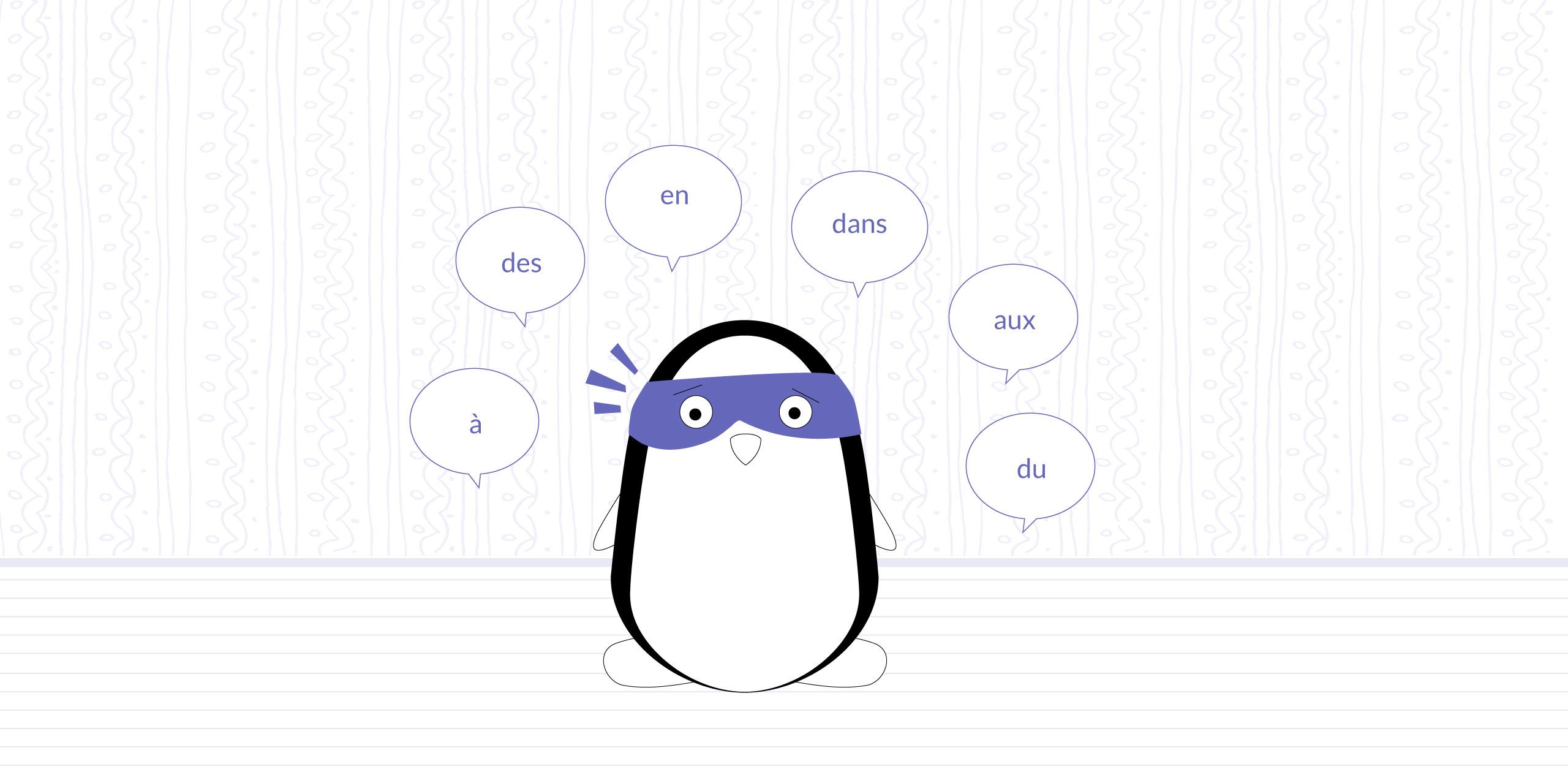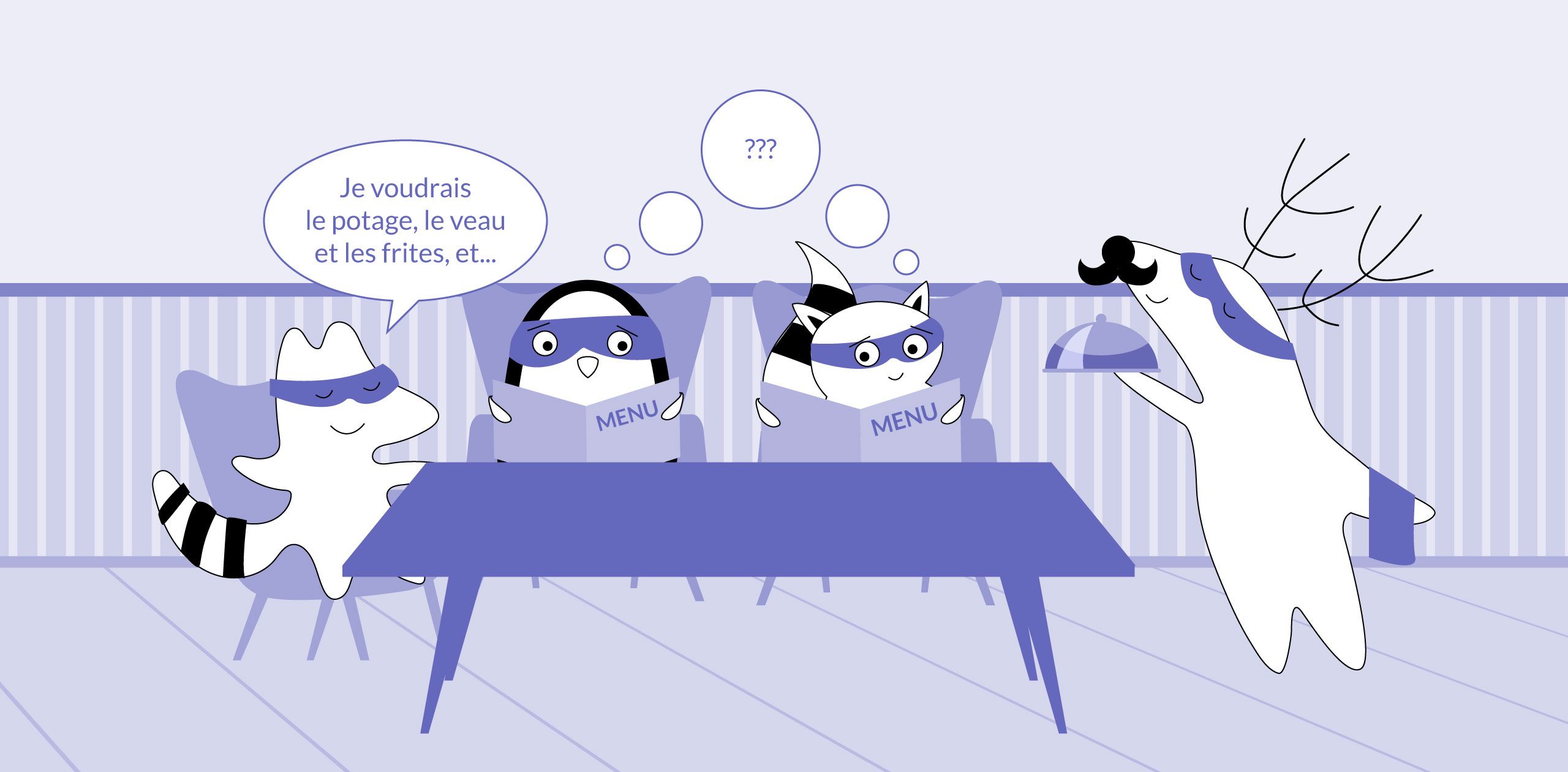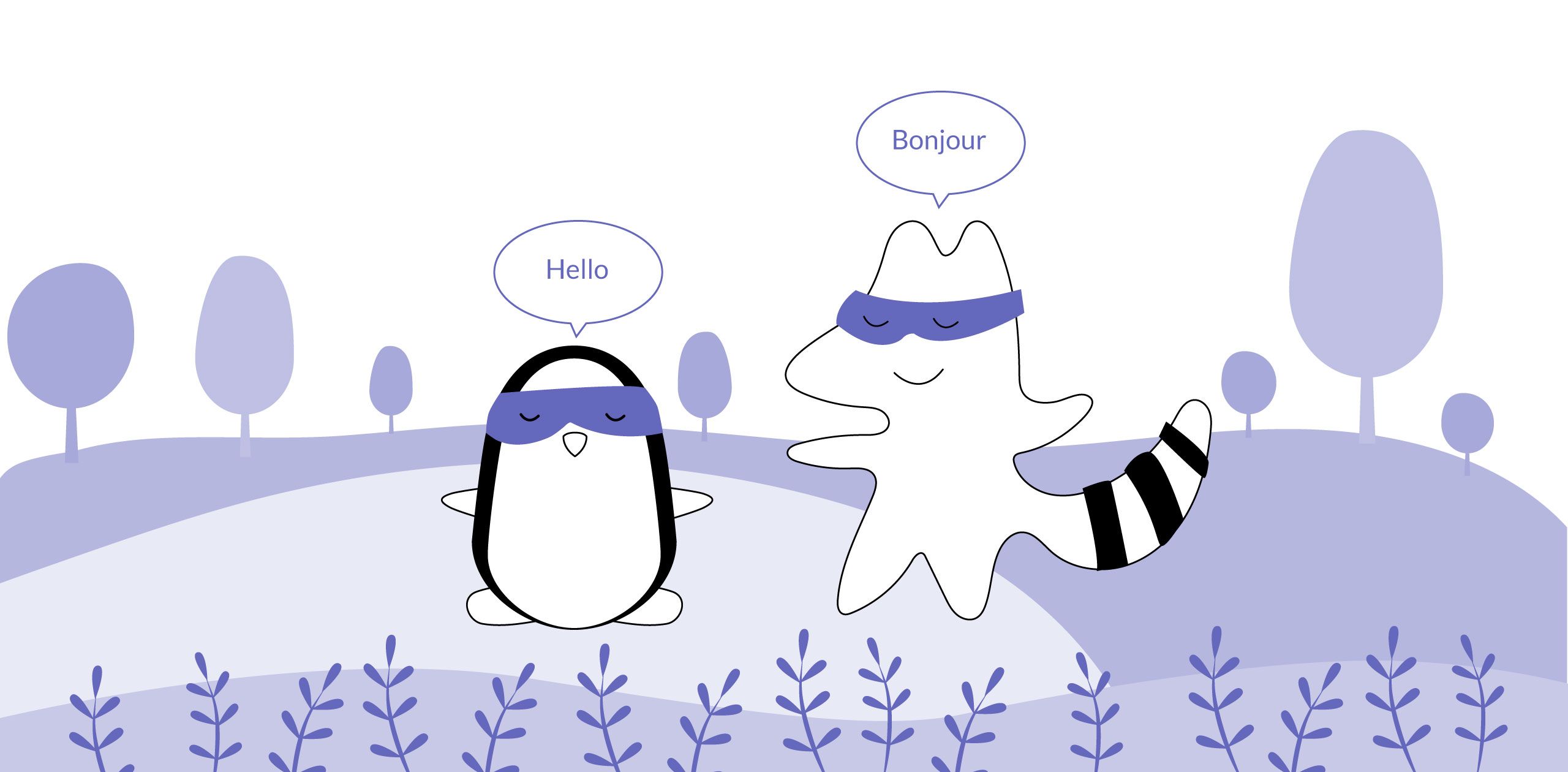
Saying hello is one of the basic things you will learn when starting your journey with any language. However, just as in English, there are many ways to say hello. The situation is similar in French.
When you are talking to friends, family, colleagues, your boss, or even a complete stranger, you will use different variations of French greetings. We are here to help you with that.
We’ve got the 10 most popular French greetings - ranging from classic “bonjour” to less common but still useful “Ça roule?” and “Quoi de neuf?” Curious about when to use which? Keep reading!
Learn French with Langster
When in Doubt, Use “Bonjour”
“Bonjour” is probably the most popular way to say hello in French. Even if you have never been to France, you’ve probably heard it in movies or read in books. Just like “je t’aime,” it has entered many languages. People all over the world use “bonjour” to greet someone.
French
English
Bonjour
Hello
When to Use “Bonjour”
French “bonjour” works in almost any context, regardless of how formal the situation is. You can say it to your close friends, teachers, a cashier, or even a complete stranger. Whether you are paying for groceries, buying a train ticket, or testifying in the police station, simply say Bonjour and it will sound polite enough.
“Bonjour” literally means “good day,” but it is basically a French version of English “hello.” Use it when you’re greeting someone you know and when you’re meeting someone for the first time.
Pronunciation
“Bonjour” is a simple word, but if you want to sound like a native French person, it can be a little challenging to pronounce.
The key for English speakers here is to remember that “n” after a vowel usually makes it nasal, and French ou sounds close to English oo. So, “Bonjour” will be pronounced closely to bo~joor.
However, if you want it to sound perfect, make sure to listen to the native pronunciation of this word in our app.
“Salut” - for “Hi” and “Bye”
We have already covered this word in an earlier article about saying goodbye in French. However, repetition is the mother of perfection.
“Salut” is a common way to say hello in French, but it is used only in informal situations. Depending on the context, it can mean “hi,” “hello,” or “bye,” so you can use it almost whenever you want, except for formal situations.
French
English
Salut
Hi / bye
However, it is commonly accepted that “salut” most often means “hi” in French. When you don’t know whether to use it or not in a certain situation, it is generally safer to use the more formal “bonjour” to avoid making a confusing faux pas.
For example, you probably won’t say “hi” to your boss. If you are greeting your friends or family members, “salut” is perfectly suitable.
What to Remember When Using “Salut”
Don’t say “salut” in formal situations when you want to make a good first impression. Stick to it only during informal occasions, such as having drinks with friends or meeting with your partner.
Also, when pronouncing “salut,” make sure to omit the final t sound - at the end of the word, it’s almost always silent.
“Bonsoir” (And Variations) - When You’re Tired of “Bonjour”
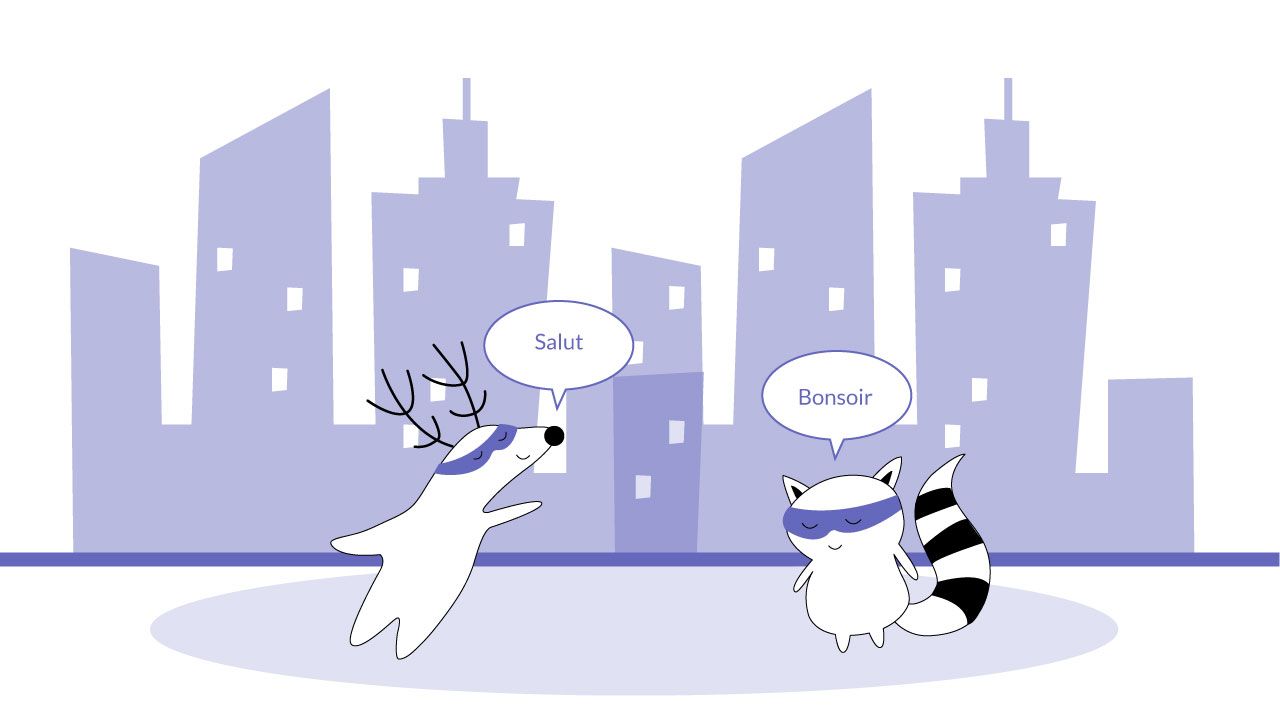
Apart from saying “hello” and “hi” in English, you also greet people by saying “good morning” or “good afternoon.” In the French language, you’d do the same.
French
English
Bonsoir
Hello / good evening
The English translation of “bonsoir” is “good evening,” and, apart from it, you can also say:
French
English
Bon après-midi
Good afternoon
Bon matin
Good morning
and
French
English
Bonne nuit
Good night
Just like “salut,” you can use all those both as a way to greet someone and a way to say goodbye. You can also use any of the above both in formal and informal situations, just like “bonjour.”
So, when to use “bonsoir” and its variations? Whenever you want! All those expressions are commonly used instead of “bonjour” or “salut,” and they add a nice little twist. Whether you’re at school or in a work meeting, don’t hesitate to use “bonsoir” or “bon après-midi” to wish someone a good day.
What to Remember?
Time of day, of course. After all, you won’t say “bon matin” at night or “bonne nuit” in the afternoon. If you do, it will look super strange.
Another tip if you want to sound like a real francophone - don’t use “bon matin” in France. European French speakers don’t have an alternative to the English “good morning,” and they use “bonjour” instead. However, you’re free to use “bon matin” in Canada.
When You Answer the Phone - “Allô ?”
No, you normally won’t say “hello” when answering the phone. Instead, you will use “allô ?” And don’t forget about the rising tone of a question.
French
English
Allô ?
Hello? (When answering the phone)
Because you might not know who exactly is calling, you will normally say “allô ?” in a variety of situations, both formal and informal ones.
Depending on the person on the other side of the phone (for example, your boss or close friend), you can play with your tone of voice, and add some other words - such as “monsieur,” “mon ami/e,” “mon cher/ma cherie” (my dear), or anything else you find suitable.
You can also use “allô ?” to check whether the person you are talking to is still on the other end of the line or not. Something like “Hello? Are you there?’
What About When Calling Someone?
Don’t worry - when you’re calling someone, you don’t have to use “allô?” Instead, you can use whichever phrase suits the situation - from “bonsoir” to “salut.”
“Comment Ça Va ?” - “How Are You?”
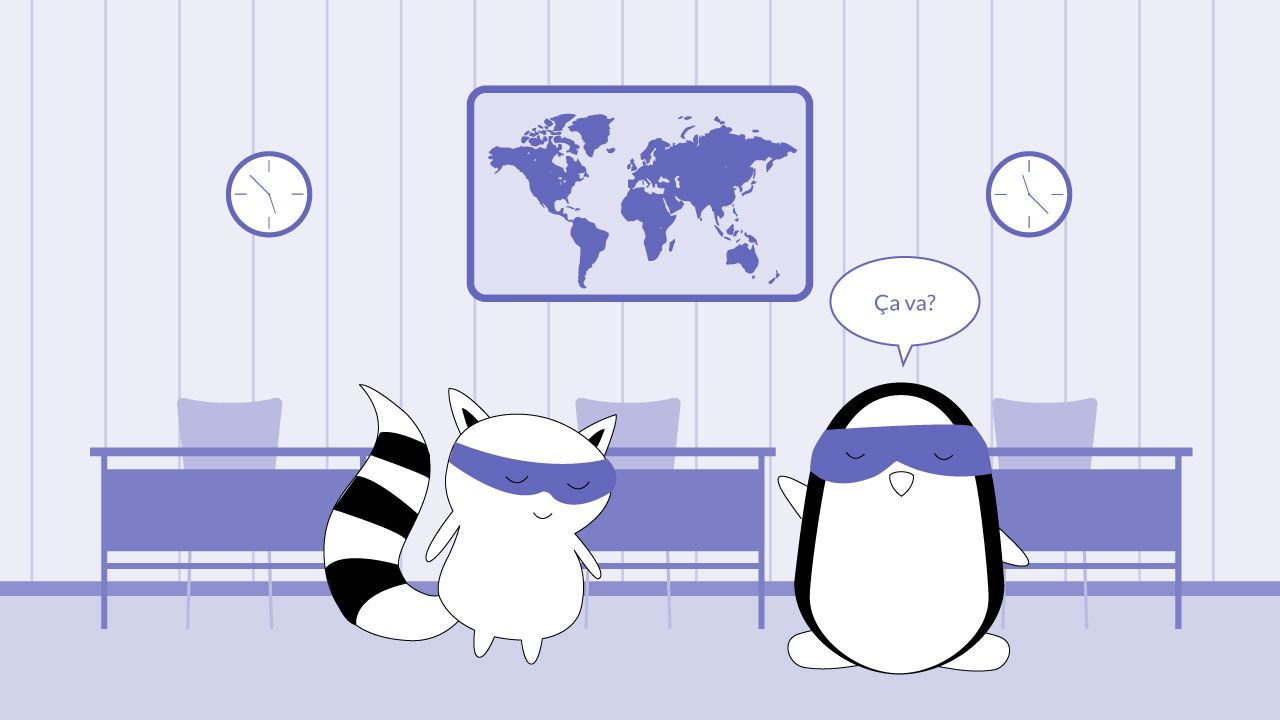
If you have ever taken French classes, you might have already heard this phrase. Most French teachers love to use it at the beginning of every lesson. Why? Because “comment ça va ?” is just as popular as “bonjour” - but it sounds a little more interesting.
The literal translation of this phrase is “It goes?” or “How is it going?” and it can be used in many social situations - both formal and informal. You can also say Bonjour! Comment ça va ? to greet someone in a more polite way.
In France, this phrase is commonly used along with its shorter version, “Ça va ?” (How’s it going?) When meeting with friends or peers, you can simply say Ça va ? - and it will sound way cooler than a simple “bonjour.”
French
English
Comment ça va ?
How is it going? (Polite)
Ça va ?
How’s it going? (Informal)
When to Use “Comment Ça Va ?” and “Ça Va ?”
Just like “bonjour,” you can use “Comment ça va ?” almost anywhere you want - at school, at work, at the bank, or at the store. On the other hand, when it comes to “Ça va?,” avoid using it in formal situations (for example, if you’re addressing someone with vous).
How to Respond to “Comment Ça Va ?” and “Ça Va ?’
There are two options here. First, you can say Ça va bien, merci ! (It’s going good, thank you), Pas mal (not bad), or Ça va bien. Et toi ? (It’s going good, and you?) Or you can omit the first part of the phrase and simply say “Et toi ?” In that case, “I’m fine” is implied.
If you’re having some troubles in life, you can also reply with Comme-ci comme-ça (Things are so-so). If you’re having a bad day, you can say, “Ça va mal.”
French
English
Ça va bien, merci !
It’s going good, thank you!
Pas mal
Not bad
Ça va bien. Et toi ?
It’s going good, and you?
Comme-ci comme-ça
Things are so-so
Ça va mal
Things are bad
Spice Up the Conversation - “Quoi de Neuf ?”
What kind of language article would this be if we don’t cover slang? “Qui de neuf ?” basically means “what’s up?,” and it should only be used in informal situations with people you know well.
Because of the context, strangers or even acquaintances may feel uncomfortable if you ask them this question. Make sure to stick to this French greeting only with friends and family.
Does it sound strange to you? If so, breaking down the words of the phrase may help. “Neuf” means “new,” not “nine” as you may have thought. This expression literally translates to “What of new?” or “What’s new?”
French
English
Qui de neuf ?
What's new?
How to Use “Quoi de Neuf ?”
When you want to greet someone in French, you can simply say Quoi de neuf ? This phrase will be especially helpful if you haven’t seen each other for some time and don’t know what has happened lately.
You can also greet someone with “bonjour” or salut,” and then add “quoi de neuf?” Or ask how are things going in their hometown: Quoi de neuf à Paris ?
“Coucou !” - Cute and Simple
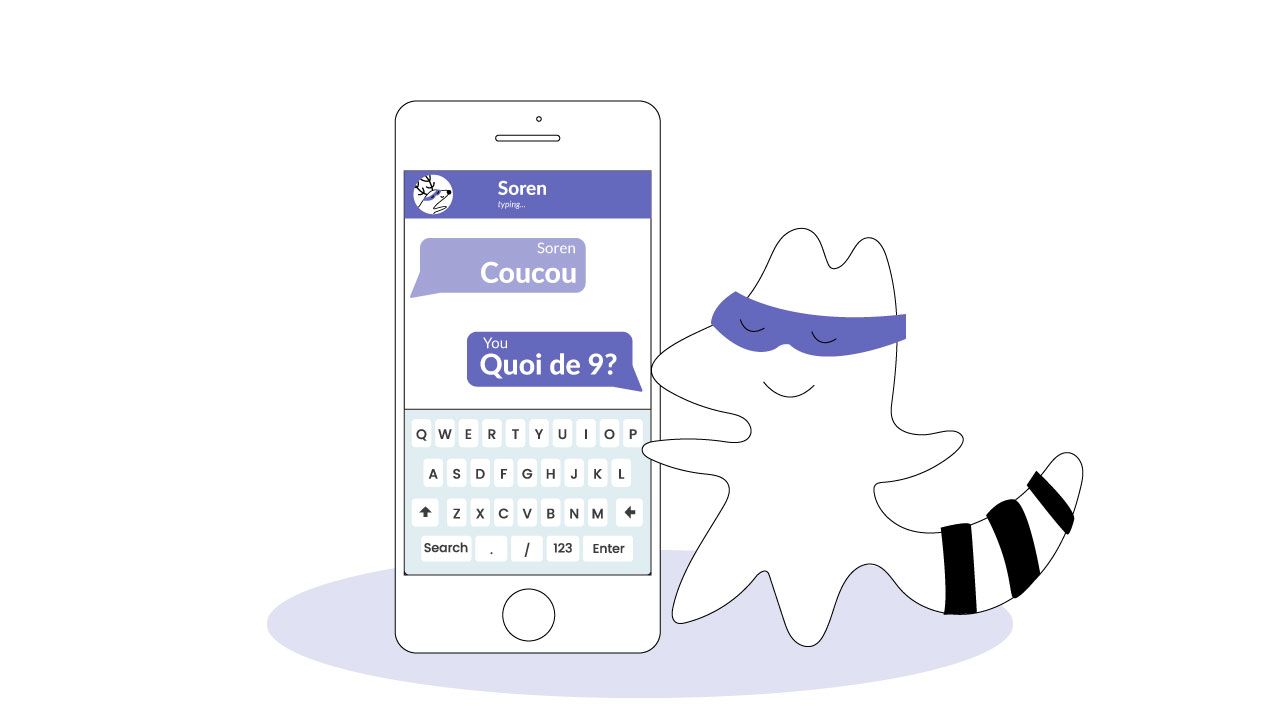
“Coucou” is a cuter brother of “salut,” but you won’t normally hear it in class. It’s one of the most informal ways to greet a person, and it’s usually used with children or among close family and friends.
Loosely translated as “hey there,” it’s not something you would shout on a street. Instead, use it when surrounded by people you know well and in text messages. “Coucou” is also a great way to grab someone’s attention - but overall, it’s not as popular as other ways to greet someone in French.
French
English
Coucou!
Hey there!
“Ça Roule ?” - When You Want to Sound Like a Native
“Ça roule ?” is just another informal way to say hello in French. Unlike “coucou,” it’s commonly used by native speakers. And if you want to sound like a Parisian, make sure to add it to your vocabulary.
This expression is literally translated as “that rolls,” but it can be used as a way to ask “how's it going?” or or “how are things?”
Of course, if you don’t want to add yet another expression, you can stick to “ça va ?” However, if you want to sound like a native, we strongly recommend remembering this useful French greeting.
French
English
Ça roule ?
How's it going?
How to Respond to “Ça Roule ?”
One of the most common responses to “ça roule?” would be “Comme d'hab!” - a shortened form of “Comme d'habitude” (as usual). However, you can also respond to it the same way you’d do with “ça va.”
French
English
Comme d'habitude/Comme d'hab
As usual
Best Way to Grab Someone’s Attention - “Excusez-moi?”
Imagine a situation: you’ve come to the store, and you can’t find a dress you like in a proper size. In that case, you’d come to the consultant, and ask Excuse-moi ? (Excuse me?)
However, this phrase can also be used in a variety of other situations. - For example, when you want to greet a stranger or ask for help, use “excuse-moi.” Just remember that in such a case, you have to add “bonjour,” - so that you don’t sound rude.
French
English
Excuse-moi ?
Excuse me?
“Enchanté/e” - Spoken Like a Native
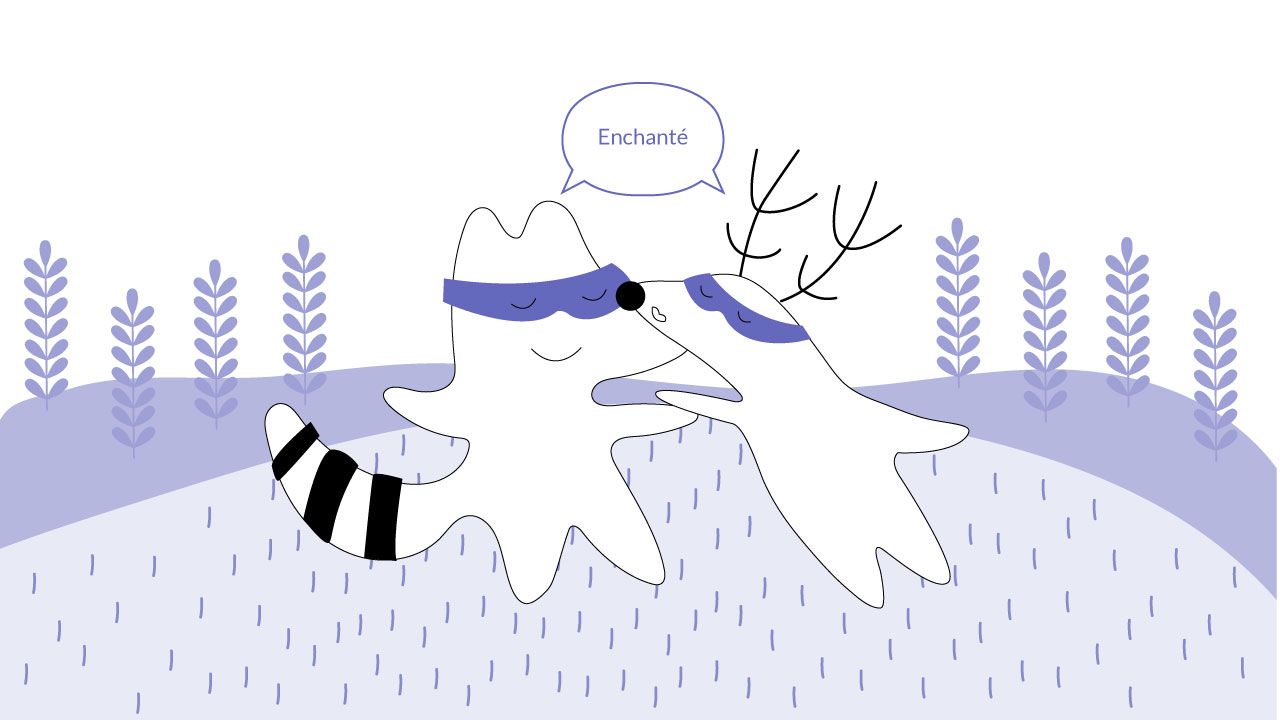
Even if you haven’t studied French before, you may have already heard this French greeting - whether in a TVtv -show (Friends, maybe?), a movie, or a book. It sums up all the fluttering expressions that other languages have - so instead of saying “it’s nice to meet you,” you can say “Enchanté/e.”
Literally translated, it means “I’m enchanted to meet you,” making the person you’re talking to feel like a delightful, magical person. If you ask us, it’s really nice to hear - so don’t hesitate to use it when greeting someone for the first time.
French
English
Enchanté/e
It's nice to meet you
How to Use “Enchanté/e” Properly?
When you meet someone in person, you’d usually say Enchanté/e and give them la bise - a kiss in French - or shake hands. This will help you start on the right foot and establish a good connection.
When texting, you will rarely use this word. However, if you do, remember about the suffix. If you are a man, you would use “enchanté,” while if you are a woman, you will add one more e to the word: “enchantée.”
Final Thoughts
Of course, there are many other ways to say hello in French, but learning just these ten will broaden your vocabulary and help you communicate better in the language you’re learning.
Our article, however, was not only meant to introduce you to the most common greetings in French. We also hope that it also helps you figure out how to use different “hellos” - from “bonjour” to “enchanté/e” - in different situations.
Want to learn more about different ways to say some basic phrases in French? Check out other articles on our blog and make sure to try our language learning app. There, you will be able to hear the native French pronunciation of thousands of words in context - and make the process of learning French a bit more fun.







